
Playism's Executive Producer shares his insight on the rise of Steam in Japan and thriving Japanese indies
Over at PAX West 2024, I got to check out all six titles that Playism was showcasing on the floor this year. Playism has been a growing publisher in the Japanese indepndent developer scene over the last several years. This year, the following titles were at their booth:
- Homura Hime - coming to PC via Steam
- Metal Bringer - coming to PS5 and PC via Steam
- Nitro Express - coming to PC via Steam
- Outrider Mako - coming to PC via Steam
- Million Depth - coming to PC via Steam
- Haruka: Beyond the Stars - coming to PC via Steam
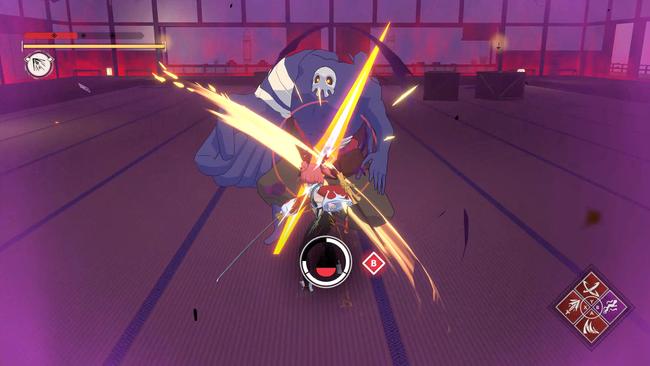
Not all of these titles will end up being relevant to RPG Site's scope, but a lot of them caught my interest pretty fast. Homura Hime is a 3rd-person action game that isn't shy to display its inspirations from Nier: Automata. There are certain attacks that have to be parried, while others have to be dodged entirely; bosses will frequently fire bullet hell-esque shot patterns as fights continually intensify against them. Healing items are limited and bosses hit hard, so a degree of finesse and mastery is required on the player's part to succeed.
Metal Bringer is one I've already been excited for, because this comes from the developers of Samurai Bringer. It's an isometric roguelite action-adventure game with a massive amount of customization systems to tinker with - both mechanically and aesthetically. In this new game, people will be able to pilot large mechs as well, which amplifies the chaos; I brought out my inner Ryo Hazuki and chose to deploy on a gigantic forklift, instead of a mech though.
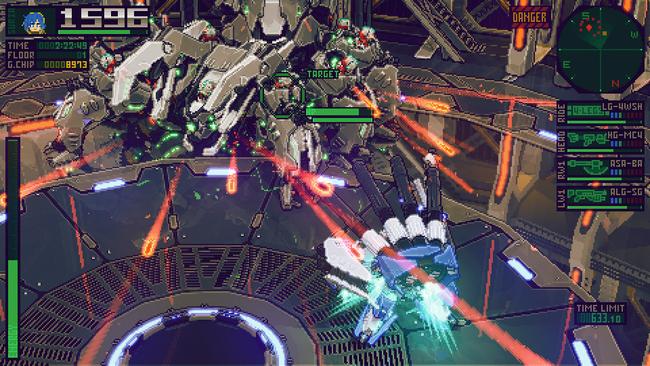
Nitro Express was only recently announced, but it already had a playable build at PAX West 2024. This is a sidescrolling shooter where players can choose a primary and secondary weapon before deploying on a mission. As people traverse through stages, they have to keep the position of their character in mind, relative to incoming projectiles from enemy fire; players have a dodge roll full of invincibility frames as their main defensive tool. I armed myself with an auto shotgun and laser cannon and feverishly unleashed hell to anyone I encountered. There's a lot of charm in its visual presentation, especially in its Metal Gear Solid-esque walkie-talkie chats that are styled like the stealth action game's Codec conversations.
Outrider Mako is a top-down 2D action game that builds its systems around ping-ponging between enemies through jump attacks. Mako, the protagonist, can perform a manuever like Sonic's homing attack, but instead of bouncing off of them, she can actually cling onto an enemy and dump some sort of poisonous liquid on them for a bunch of damage. Enemies can kill Mako fast, so people have to really take advantage of the invincibility frames in Mako's jump animation. There were a lot of cool ideas in this one that I didn't get to properly utilize, since my time with the demo was limited.
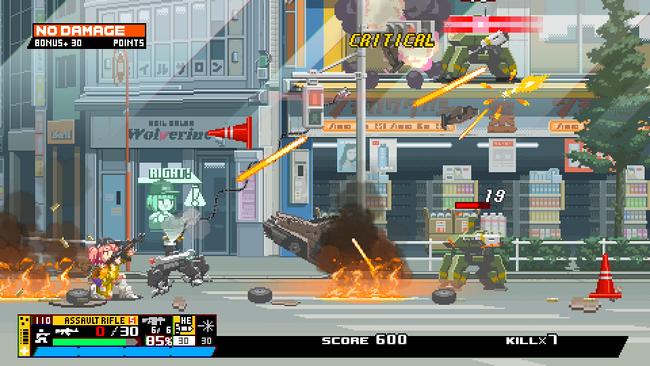
Million Depth was probably the most unique game I played from Playism's lineup. The main character Moma comes from outer space and she's diving into the depths of Earth to find her only friend. Combat in Million Depth took me by surprise, since it's a sidescroller that freezes everything on the screen once combat begins; enemies only move if players move. While bumping into enemies with Moma will do a tiny bit of damage, the player's main offensive tools come from floating weapons they build out of blocks. The amount of damage they deal and the amount of damage they can take (before they are destroyed and come back on a cooldown) all depends on how a player constructs them; it's a fascinating concept that I hope comes together in the final release. This one was pretty cool.
Lastly, Haruka: Beyond the Stars is a title that I believe is the furthest out till its full release. It's an action RPG slated to release in 2026 that's still in a fairly early state. People step into the shoes of Yuuki and meet an enigmatic girl named Miiya whose spaceship has crash-landed near his house. Once again, the game is still in early development so its battle system isn't quite finalized yet; there are basic light attacks and heavier attacks that consume reloadable Energy Capsules. It'll still be awhile before this game releases.
I also got the chance to speak with Shunji Mizutani, the Executive Producer of Playism. It was an insightful chat that delved into the current state of Japanese indie games. Give it a read down below!
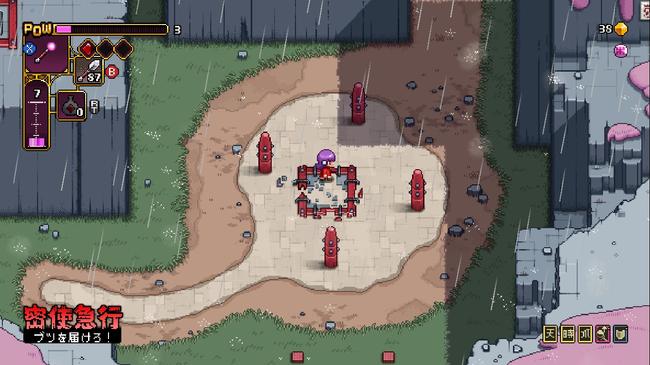
Shunji Mizutani, Executive Producer of Playism: I believe there are two factors. The first is localization; recently, I feel that more and more games are being localized into a lot of different languages. That is certainly a factor and the other factor is the platform. Indie games are growing and platforms like Steam really give indie developers a way to put their games out to a wide audience. Before that, they would only be able to showcase their games at smaller events. Now, it’s a lot easier to globalize in that sense.
Mizutani: We really look for… how should I put it. Our brand name is Playism and ‘play’ is at the root of that name. I want to have a lot of gamers play creative titles specifically. We’re looking for games that have mechanics that aren’t really seen in AAA titles; new mechanics, new gimmicks, something that has never been seen in a game before. That’s one of the things we’re looking at.
Another thing is that the developers we choose to work with are really small developers that are either solo or they’re run by a small team. We like working with developers that have this passion for developing indie games and have that passion for making something new that hasn’t been seen before. We really want to support them.
It’s not like we look for whether a game will sell or not. Instead, we just want to support these creators that want to get their game out there for people to play. Another addition to that is that if we think a creator hadn’t made their game, then this type of unique game wouldn’t have been introduced to the world and to a bunch of potential fans, so we strive to support more niche and unique titles.
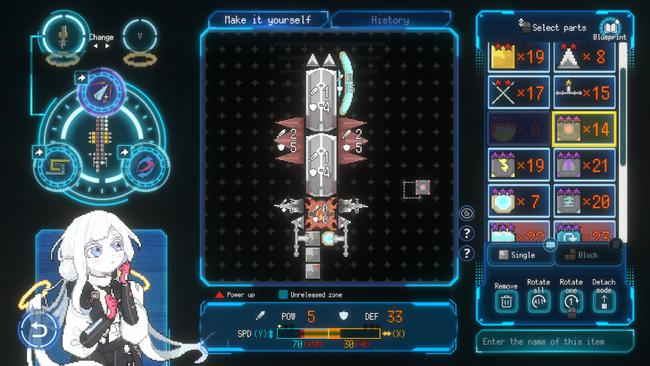
Mizutani: I feel that one of the reasons Steam proliferated in Japan was with the help of streamers and content creators. They made their way to Japan and a lot of people started to stream themselves in Japan. To me, that helped the growth of Steam there.
Then in 2020, the COVID pandemic hit. During this time, consoles like Xbox and PlayStation were very hard to get in Japan. But PCs were widely available. A lot of people who wanted to get into games turned to PCs, as a result. That helped the growth of Steam in Japan, too.
Mizutani: I’ve been extremely happy at the turnout here at the Playism booth. Seeing everybody play our titles and give us feedback, as well. We share the feedback we receive to each developer personally and I talk to them about it. A lot of the developers are worried, because they’re wondering what the western audience will think about their title. Hearing the positive feedback from players here really puts the developers at ease and they’re happy to hear that their game is being liked around the world.
Mizutani: There’s two I’d like to shout out. One of them is Digital Games Expo which takes place in Akihabara. It’s a little bit of a smaller event, but it’s a really great event for indie developers and indie lovers to get together and try out a bunch of games.
Another one is not really geared for B2C (business-to-consumer), but more for developers to meet up. It is called Indie Developers Conference; it takes place in Japan and it’s a great event for developers to meet up with each other to discuss what they’re working on.
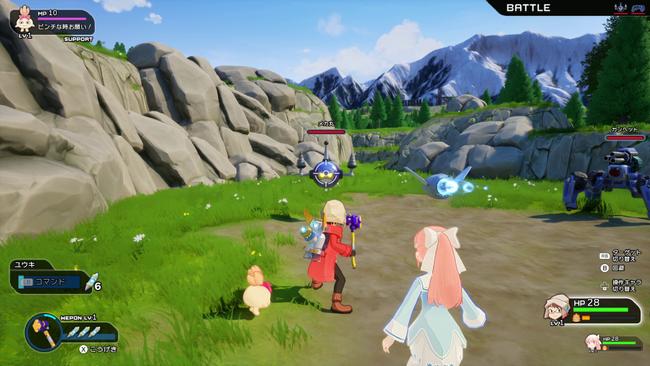
Mizutani: Unfortunately, the same is happening in Japan as well. Japan also sees a big growth of indie game developers who want to have their title published, but the growth rate for indie game developers compared to indie game publishers is getting steeper and steeper. Therefore, publishers are having a hard time catching up with that growth. It forces the publishers to work harder to really support more developers, but they also have limits. So yes, I do feel the same way.
Mizutani: First of all, we’d like to give a huge thanks to everybody supporting our titles and for everyone who came to PAX. I’m really looking forward to the full release of all the titles we’re showcasing here today and see the reactions of overseas users, especially with titles like Outrider Mako which took about 5 years to develop, and Homura Hime also took awhile to develop. Bringing these titles out and having users enjoy them is something we’re looking forward to.